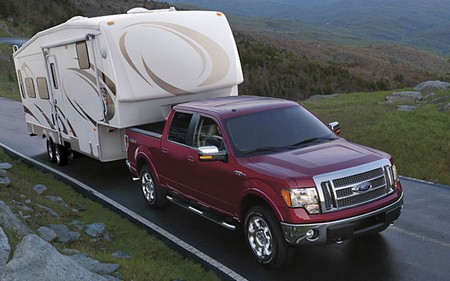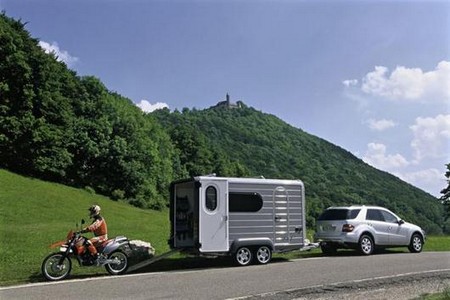If you have ever had the chance to plan a camping or boating trip, or perhaps even participate in auto racing, it’s likely that the activity would entail towing a trailer at some point. Towing a trailer may seem like a herculean task, but once you get the details ironed out, knowing how to tow a trailer isn’t as big a deal as it seemed at first.

You will need to use your common sense and adjust your driving in order to tow a trailer. Knowing how to tow a trailer means that you should be able to alter your driving speed to half of what you usually achieve when driving without a trailer. This means accelerating and turning at a much slower rate as well as using more time and space to stop or change lanes.
In order to tow a trailer without incident, you will have to place equal importance on the vehicle doing the towing in addition to the trailer itself. A rear wheel drive car with a full sized body-on-frame rated to tow 2000 lbs is the bare minimum that can be used to tow a 2000 lbs trailer. Smaller cars can be used for smaller trailers, but generally, larger vehicles are better for towing anything exceeding 2000 lbs.
The hitch used to attach the trailer to the towing vehicle is important. Most towing-appropriate vehicles come with a Class 3 hitch right out of the factory. This is the most common hitch, and the preferred attachment method is to have it bolted on rather than welded. This hitch is capable of towing a trailer weighing up to 5000 lbs, although a Class 4 hitch and a larger vehicle should be considered if you intend to haul something that weighs up to 7500 lbs. however, most campers, trailers and boats can be hitched to a Class 3 hitch. The drawbar fastened to the receiver that holds the trailer to the tow vehicle is available in different heights to ensure the trailer rides on a level plane.
Before you embark on the trip, always ensure that the pin that secures the ball mount to the receiver is intact and the hitch coupler is secure. Safety chains should be properly attached and the electrical plug should be properly installed. Spring bar hinges should be tight and their safety clips are in place. This ensures that the trailer load is evenly distributed and allows the trailer to maintain its balance while moving. Failure to do so may result in a trailer fishtailing on the road due to improperly distributed weight. By then you’d have to call a tow truck company to deal with your case.









